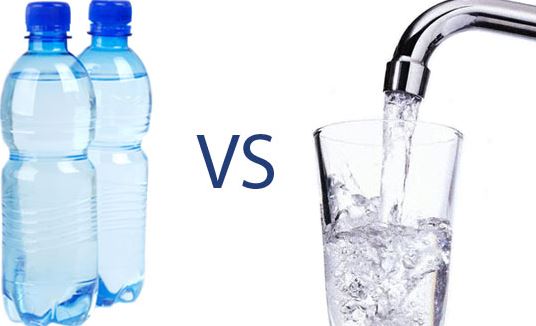
A major fraction of people believe that since bottled water undergoes a filtration process that helps improve its taste, smell and color, it’s translates into a healthier option for you. Filtration reduces the possibility of pollutants such as lead, microbes and chemical products of chlorine, so it’s got to be a better option, right?
Well, not really. “While filters can dramatically lessen the exposure to deleterious constituents, it doesn’t always mean bottled water will be a healthier option,” opines Katherine Patton, a certified sports dietician and registered dietician.
Bottled vs. Tap Water
When a customer signs up for water delivery options with companies, a crisp, clean, bottled water, and reliable delivery service, will be received at reasonable rates. Bottled water products and public water supplies are not mandated by either agency to be completely contaminant free, but the final product should always be compliant with all federal, state or provincial potable water standards.”
Some bottled water is laden with untested industrial chemicals and may not be purer than tap water. According to an environmental group, is an absence of standards regulating bottled water. “In fact,” said the report, “there are more standards regulating tap water in Europe and the United States than those applied to the bottled water industry.”
From Source to Finished Product
“At least in the United States, bottled water is regulated as a packaged food product by the U.S. Food and Drug Administration,” said Stephen Kay of the International Bottled Water Association. “It meets specified standards of quality and safety from the source all the way through the finished product.”
Bottled water may be hurting your health. A new study suggests plastic bottles release small amounts of chemicals periodically. The longer water is stored in plastic bottles, the higher the concentration of a potentially harmful chemical, a new study suggests. The research involved 132 brands of bottled water from 28 countries produced in containers made from polyethylene terephthalate, or PET.
Research found that the concentration of certain chemicals, such as antimony, increases the longer the water sits in the plastic bottle. Tap water is federally regulated and often tested for pollution levels. Tap water has its own downsides. Some water is transported in lead pipes from utility companies to residential areas.
In conclusion, is bottled water better for you than water from the tap? Both are drinkable, but both have their issues. Bottled water has could potentially have some industrial chemicals and may not have the same standards as tap water. Tap water on the other hand may be tested often for harmful chemicals, but it is still transferred through led pipes. The answer is simple. It comes down to what you feel more comfortable with; tap or bottled water.
Anica Oaks
Recent Posts
- Castor Oil For Better Hair Growth: Is It Myth Or Fact?
- Exploring the Differences Between Sermorelin, Ipamorelin, Ibutamoren, GHRP2, and GHRP6: Understanding Their Role in Human Growth Hormone Regulation
- Unraveling the Mystery: Understanding the Causes and Prognosis of Ventricular Tachycardia Without Apparent Heart Disease
- Understanding Grandparents’ Rights in Oklahoma: Navigating Visitation and Legal Protections
- 10 Reasons to Consider Hypnotherapy for Your Health

